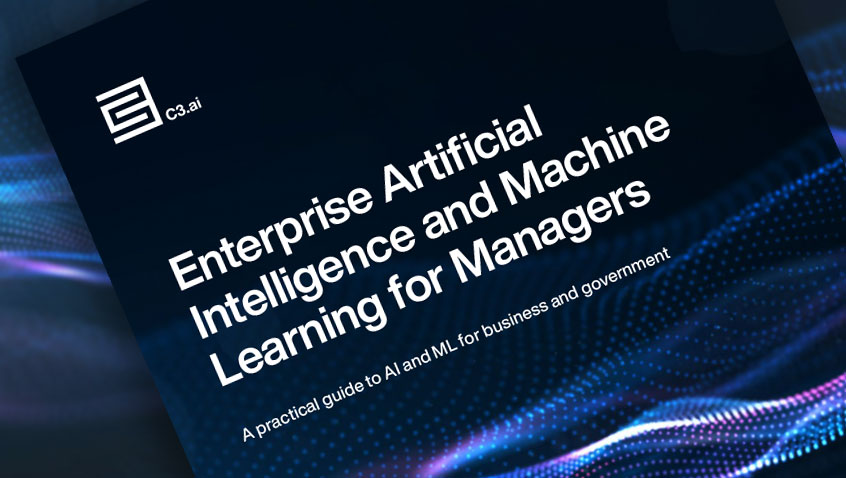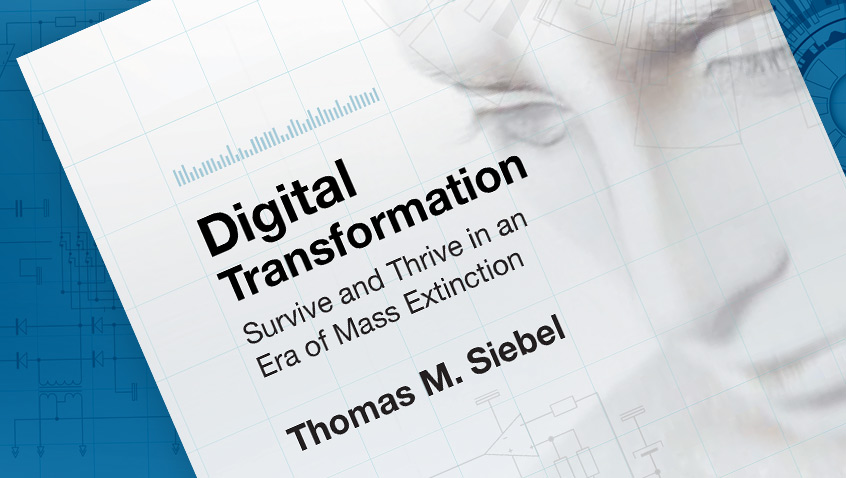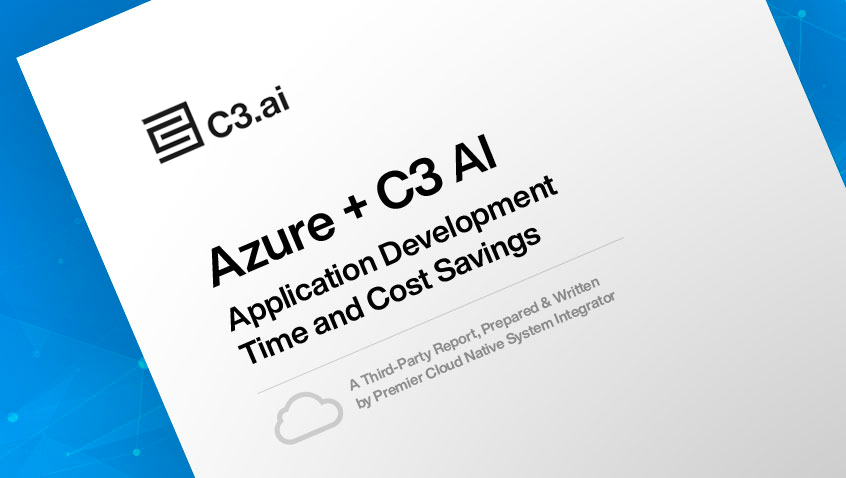- AI Software
- C3 AI Applications
- C3 AI Applications Overview
- C3 AI Anti-Money Laundering
- C3 AI Cash Management
- C3 AI Contested Logistics
- C3 AI CRM
- C3 AI Decision Advantage
- C3 AI Demand Forecasting
- C3 AI Energy Management
- C3 AI ESG
- C3 AI Health
- C3 AI Intelligence Analysis
- C3 AI Inventory Optimization
- C3 AI Process Optimization
- C3 AI Production Schedule Optimization
- C3 AI Property Appraisal
- C3 AI Readiness
- C3 AI Reliability
- C3 AI Smart Lending
- C3 AI Supply Network Risk – bak
- C3 AI Turnaround Optimization
- C3 Generative AI Constituent Services
- C3 Law Enforcement
- C3 Agentic AI Platform
- C3 Generative AI
- Get Started with a C3 AI Pilot
- Industries
- Customers
- Events
- Resources
- Generative AI for Business
- Generative AI for Business
- C3 Generative AI: How Is It Unique?
- Reimagining the Enterprise with AI
- What To Consider When Using Generative AI
- Why Generative AI Is ‘Like the Internet Circa 1996’
- Can the Generative AI Hallucination Problem be Overcome?
- Transforming Healthcare Operations with Generative AI
- Data Avalanche to Strategic Advantage: Generative AI in Supply Chains
- Supply Chains for a Dangerous World: ‘Flexible, Resilient, Powered by AI’
- LLMs Pose Major Security Risks, Serving As ‘Attack Vectors’
- What Is Enterprise AI?
- Machine Learning
- Introduction
- What is Machine Learning?
- Tuning a Machine Learning Model
- Evaluating Model Performance
- Runtimes and Compute Requirements
- Selecting the Right AI/ML Problems
- Best Practices in Prototyping
- Best Practices in Ongoing Operations
- Building a Strong Team
- About the Author
- References
- Download eBook
- All Resources
- Publications
- Customer Viewpoints
- Blog
- Glossary
- Developer Portal
- Generative AI for Business
- News
- Company
- Contact Us
Glossary
- Artificial Intelligence
- AI Agents
- AI in Finance
- AI in Manufacturing
- Anomaly Detection
- Anti-Money Laundering
- Asset Performance Management
- Asset Reliability
- Demand Forecasting
- Digital Disruption
- Digital Transformation
- Digital Twin
- Elastic Cloud Computing
- Energy Management
- Enterprise AI
- Enterprise AI Platform
- Ethical AI
- Inventory Planning
- IoT Platform
- Know Your Customer (KYC)
- Machine Vision (Computer Vision)
- Model-Driven Architecture
- Multi-Cloud
- No Code
- Predictive Analytics
- Predictive Maintenance
- Process Optimization
- Production Scheduling
- Stochastic Optimization
- Supply Chain Management
- Type System
- Data Unification & Management
- Machine Learning (A to L)
- Artificial General Intelligence
- Bias
- Canonical Schema
- Canonical Transform
- Classification
- Classifier
- Classifier Performance
- Clustering
- Coefficient of Discrimination, R-Squared (R2)
- Convolutional Neural Network (CNN)
- Correlation
- Data Cleansing
- Data Labels
- Data Lineage
- Deep Learning
- Dimensionality Reduction
- Explainable AI
- F1 Score
- False Positive Rate
- Feature Engineering
- Feedback Loop
- Field Validation
- Gaussian Mixture Model (GMM)
- Generalized Linear Models
- Gradient-Boosted Decision Trees (GBDT)
- Features
- Ground Truth
- Holdout Data
- Hyperparameters
- Information Leakage
- LIME: Local Interpretable Model-Agnostic Explanations
- Linear Regression
- Loss Function
- Low-Dimensional Representation
- Machine Learning (M to Z)
- Mean Absolute Error
- Mean Absolute Percent Error
- Machine Learning Pipeline
- Model Drift
- Model Prototyping
- Model Training
- Model Validation
- Normalization
- Overfitting
- Precision
- Problem Tractability
- Random Forest
- Recall
- Receiver Operating Characteristic (ROC) Curve
- Regression Performance
- Regularization
- Reinforcement Learning
- Reporting Bias
- Ridge Regression
- Root Mean Square Error (RMSE)
- Selection Bias
- Shapley Values
- Supervised Machine Learning
- Tree-Based Models
- Underfitting
- Unsupervised Machine Learning
- XGBoost
Gradient-Boosted Decision Trees (GBDT)
What are Gradient-Boosted Decision Trees?
Gradient-boosted decision trees are a machine learning technique for optimizing the predictive value of a model through successive steps in the learning process. Each iteration of the decision tree involves adjusting the values of the coefficients, weights, or biases applied to each of the input variables being used to predict the target value, with the goal of minimizing the loss function (the measure of difference between the predicted and actual target values). The gradient is the incremental adjustment made in each step of the process; boosting is a method of accelerating the improvement in predictive accuracy to a sufficiently optimum value.
Why are Gradient-Boosted Decision Trees Important?
Gradient-boosted decision trees are a popular method for solving prediction problems in both classification and regression domains. The approach improves the learning process by simplifying the objective and reducing the number of iterations to get to a sufficiently optimal solution. Gradient-boosted models have proven themselves time and again in various competitions grading on both accuracy and efficiency, making them a fundamental component in the data scientist’s tool kit.
How C3 AI Enables Organizations to Use Gradient-Boosted Decision Trees
C3 AI provides leading enterprise AI technology that enables large organizations to harness and extract value using a wide variety of AI and machine learning libraries, resulting in step-function improvements across business processes. The C3 AI® Platform is a complete, end-to-end platform for designing, developing, deploying, and operating enterprise AI applications at industrial scale. The C3 AI Platform provides comprehensive capabilities enabling organizations to prepare unlimited volumes of data, and then apply advanced AI and machine learning algorithms to generate predictions and insights to drive the business. The C3 AI Platform supports a wide range of third-party and open-source libraries and frameworks for advanced mathematical, statistical and machine learning capabilities, including Spark MLib, TensorFlow, Keras, Scikit-learn, cuDNN, NumPy, SciPy, Caffe, Torch, PyTorch, Lex, Polly, Rekognition, Azure ML, H2O.ai, Stanford Core NLP, NLTK, spaCY, fbProphet, StatsModels, and XGBoost.




